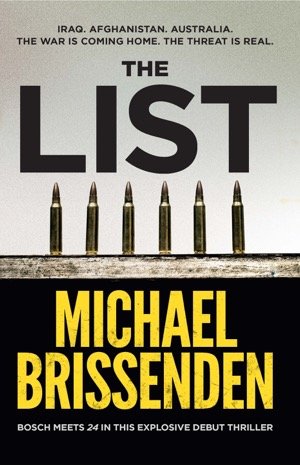
Australia’s terror watch list is getting shorter and shorter. Someone is taking them out one by one. A single shot to the head, professionally done, and their right hands removed post-mortem. Someone on the inside is getting rid of these home-grown jihadis, and doing so in a way that is ramping up the tension between Muslim and non-Muslim Australians.
Sidney Allan – Sid for short – and his partner Haifa Harouni are members of the Australian Federal Police’s K Block, the team charged with stamping out home-grown radicals and stopping terrorist attacks on Australian soil. Together they have to work out who’s killing the wannabe terrorists, why they’re doing it, and more importantly, just what the young Islamists are planning. They’ve heard chatter of an attack, one that’s coming, and one that’s going to be big.
As Sid searches for clues to help him find the identity of the mystery killer, he and Haifa both struggle with the demons from their past. Sid’s demons are memories of his time in Iraq and Afghanistan with the special forces. Haifa struggles with his family and their expectations, with two brothers leading one of the biggest gangs in Lakemba, a suburb in Sydney’s west, which has a large Lebanese community. Both the brothers are now in the super-max wing at Goulbourn jail, while another brother is the poster boy for Muslim inclusion, tipped for a seat in Canberra. Hakim Hourani is what Prime Minister Brian Williams wants Australian Muslims to be – calm, well-spoken, and a bridge between cultures. But Hakim’s charity, the Muslim Relief Fund has been accused of funnelling money meant for supporting refugees to Islamic State insurgents in Syria and Iraq.
Sid and the mystery gunman are both searching for the same thing, an Australian jihadi known as The Scorpion who spent some time fighting in Afghanistan and is now back in Sydney, fighting on home soil. But The Scorpion is proving hard to find. As details of the planned attacks begin to emerge, allegiances are tested and it becomes clear how close society is to completely falling apart.
The topics of Muslim extremism and terrorism are becoming more and more common in crime fiction, reflecting contemporary concerns. The List, along with others such as Jihadi: A Love Story and Paul E Hardisty’s eco-thrillers, treat the subject in as balanced a way as possible, presenting the evil on both sides of the war on terror. However this book is a bit too quick to cast aside the faults of the Australian special forces, and it is here that the balanced representation falls apart, and starts to appear very skewed. Despite the uneven viewpoint, The List shows Sydney as it appears in PM Newton‘s brilliant novels about Vietnamese-Australian detective Nhu ‘Ned’ Kelly, with racial tensions threatening to boil over.
Michael Brissenden is better known in Australia as a foreign correspondent with Australia’s ABC, writing about the kinds of politics and crimes that feature in The List. But good writing and an eye for a story worth telling aren’t skills that automatically transfer over from fact to fiction. There are gaps in the way the plot flows that cannot be explained away, and characters that are larger than life but barely disguised versions of real life figures and organisations. The author’s politics shine through quite didactically and readers looking for a more nuanced treatment may be disappointed, although both sides in the story feature self-justifying murderers. The List is a timely novel, that could be torn straight from the headlines of any paper in the Western world at the moment, but that urgency alone isn’t quite enough to make it a great crime read.
Hachette Australia
Kindle
£6.99
CFL Rating: 3 Stars